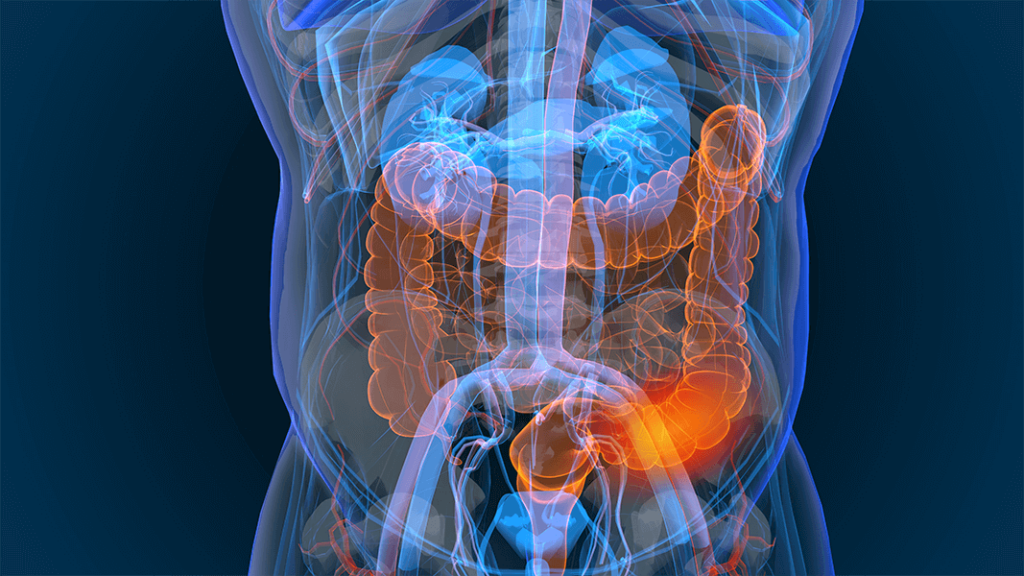What is a colonoscopy?
A colonoscopy is an endoscopic procedure where a long, flexible tube with a camera, called a scope, is inserted into the rectum and advanced through the entire colon. This allows the provider to examine the colon’s lining. Colonoscopies are used to diagnose gastrointestinal symptoms like diarrhea, bleeding, and abdominal pain, or to investigate abnormal x-ray results.
Colonoscopies are recommended for asymptomatic individuals starting at age 45 or earlier, depending on personal history, to screen for colon cancer and polyps. The colonoscopy is the only preventive measure for colorectal cancer. At Gastroenterology Associates, our board-certified gastroenterologists regularly perform these exams. Contact a nearby office in Baton Rouge, LA to learn more.

What benefits can I expect from a colonoscopy?
Colonoscopy screenings are essential in preventing colon cancer, especially for individuals over 45 or those at higher risk. Regular screenings offer numerous benefits for gastrointestinal and overall health, including:
- Detecting early signs of colon and rectal cancer
- Identifying and removing abnormal growths
- Diagnosing conditions like diverticulosis and inflammatory bowel disease (IBD)
- Providing the most effective screening for colon and rectal cancer
- Potentially saving lives
Advancements in technology have made colorectal cancer screenings faster, more comfortable, and more accurate.
What happens during a colonoscopy?
Before your colonoscopy, your provider at Gastroenterology Associates will provide detailed instructions for bowel preparation. This typically involves consuming only clear liquids the day before the exam and using a prescribed laxative to cleanse your colon thoroughly. It’s crucial to follow these instructions precisely. Additionally, you will receive guidance regarding your regular medications. Most patients can continue their usual medications, but those on blood thinners like Coumadin, warfarin, Plavix, aspirin, or anti-inflammatories, as well as diabetics, will receive specific instructions. You should not consume anything by mouth after midnight before the procedure, except for essential medications.
On the day of the colonoscopy, you will be asked to arrive at the endoscopy center at your local Gastroenterology Associates location about 1 to 1.5 hours before your scheduled exam. This extra time allows you to complete the necessary paperwork and get ready for the procedure. You will change into a medical gown, and an intravenous (IV) catheter will be placed in your arm for sedation administration. Throughout the exam, the medical team will continuously monitor your heart rate, blood pressure, pulse, electrocardiogram, breathing, and oxygen levels.
Once in the exam room, you will lie on your left side on an exam table. The sedation will be administered via the IV in small, controlled amounts to ensure your safety and provide the appropriate level of sedation. When adequately sedated, the provider will perform a rectal exam before gently inserting the colonoscope into your rectum. The scope is carefully advanced through the colon up to the point where the small bowel meets the colon. To enhance visibility, a small amount of air is introduced into the colon. Any residual fluid from the preparation can be washed and suctioned out through the scope.
During the procedure, the provider may perform biopsies, remove polyps, or control any bleeding. The entire process typically takes about 15 to 30 minutes, depending on the findings. At the end of the exam, as much air and remaining fluid as possible are suctioned out through the scope.
When will I get my colonoscopy results?
After your colonoscopy, you will be taken to a recovery room, where you will be closely monitored as the sedation begins to wear off. The amount of sedation used during the procedure and your individual response to it will determine how quickly you regain full alertness. Most patients are sufficiently awake for discharge within 45 to 60 minutes. It is important to note that you will not be allowed to drive for the remainder of the day, so you must arrange for someone to take you home. Additionally, you should avoid working, signing important documents, or engaging in any strenuous activities for the rest of the day. Most patients can resume eating and drinking normally after leaving the endoscopy unit, but you will receive specific post-procedure instructions regarding activity, diet, and medications.
After the procedure, the doctor or a nurse will discuss the findings with you. However, due to the effects of the sedation, most patients do not remember this conversation well. Therefore, it is advisable to bring a friend or family member with you who can also hear the results. You will also be given a typed report to take home. If any biopsies were taken during the colonoscopy, you will typically receive those results within a week.
Are there alternatives to a colonoscopy?
Alternatives depend on the reason for the colonoscopy. While a colonoscopy is the best method for evaluating and treating colon abnormalities and the only preventive measure for colorectal cancer, other diagnostic exams include barium enemas and virtual CT scans. However, these alternatives do not allow for the treatment of abnormalities, which would still require a colonoscopy or surgery.
Are there any risks with a colonoscopy?
Commonly, a colonoscopy is a harmless procedure. Usually, difficulties occur in fewer than 1% of persons. Additionally, most problems that arise are not fatal. Be that as it may, if a complication occurs, it may involve hospitalization and an operation. Before the exam, the nursing team will review a consent form with you so you understand the unlikely complications. If any issues or problems arise, these can be discussed with your physician before beginning the procedure.
Prescription reactions connected with IV medication can occur. These can include, but are not limited to, allergic reactions, issues breathing, effects on the circulatory system and blood pressure, and irritation of the vein used to deliver the IV drug.
Bleeding can occur with biopsies and the extraction of growths. Once again, substantial bleeding, which may require a blood transfusion or hospitalization, is uncommon. Keep in mind, though, that bleeding may occur during the procedure or up to two weeks after the test if a tumor is removed.
Penetration or puncture of the intestine can occur, although it is unlikely. This might be identified during the procedure, or it may not be noticed until later. In many circumstances, a puncture will require an operation and hospitalization. This is a rare problem, even when tumors are removed.
It is extremely crucial that you contact us without delay if symptoms occur after the exam, such as worsening abdominal pain, bleeding, or fever.
Just as with most other tests, a colonoscopy in Baton Rouge, LA is not foolproof. There is a tiny, accepted risk that irregularities, like polyps and cancers, can be missed during the test. It is crucial to maintain appointments with your specialist at Gastroenterology Associates as instructed, and inform them of any new or persistent symptoms.

The gold standard for colon cancer screening
Colonoscopy FAQs
At what age should I have a colonoscopy exam?
We recommend patients with an average chance of getting colon cancer begin getting their colon cancer exam when they turn 45 years of age. If your risks for developing colon cancer are higher or if you have distressing symptoms of colon cancer, your GI specialist might suggest having a colonoscopy even before the age of 45.
How often is it recommended you get colon cancer screenings?
GI specialists recommend getting colonoscopy screenings every ten years for patients of general risk, who are of favorable health, and have results that are normal. After your colonoscopy, your GI provider will inform you when you will want to undergo colonoscopy screenings moving forward.
Is a colonoscopy a painful exam?
Sedation will be administered to you before your colonoscopy to help ensure your comfort level during the screening. Based on the type of sedation, most individuals feel an intensely relaxed state or feel sleepy, and many patients experience no memory of the procedure. Don’t hesitate to discuss what you should expect during your consultation with your colonoscopy provider.
What’s the average recovery period for a colonoscopy exam?
On average, our patients need around 24 hours to recover, and most individuals feel well enough to resume normal activities the subsequent day. It is expected that you’ll notice some stomach irritation following a colonoscopy, such as cramping and bloating. Our Gastroenterology Associates team will go over additional information about what to expect as you recover.
